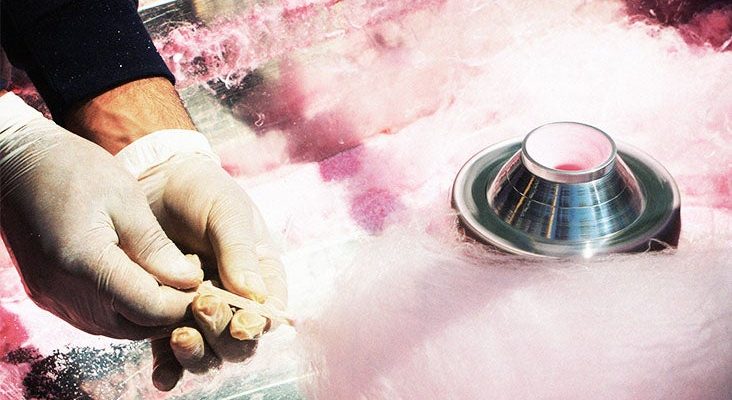Kidney stones: Added sugars in diet may increase risk, study finds

- New research shows that added sugar consumption may be a risk factor for developing kidney stones.
- The negative health effects of added sugar, such as high blood pressure, insulin resistance, and obesity, are also risk factors for kidney stone formation.
- Added sugars can also lead to less urine volume and elevated urinary calcium, which may lead to the development of kidney stones.
Kidney stone formation is a painful condition that may cause vomiting, bloody urine, fever, and chills and interfere with quality of life.
Risk factors for kidney stones include obesity, diabetes, and inflammatory bowel disease (IBD).
New research suggests added sugar intake may be a risk factor for developing kidney stones.
The study authors analyzed data from 28,303 adults between 2007 and 2018 from the National Health and Nutrition Examination Survey (NHANES).
The data included the participants’ history of kidney stones and their daily intake of added sugars, determined by their self-reported recent consumption of food and drinks.
The findings were recently published in Frontiers in Nutrition.
Study shows added sugar leads to kidney stone formation
The study authors defined added sugar as “sugars or caloric sweeteners added to foods or beverages during processing or preparation to add flavor or extend shelf life.”
Participants included in the survey were given a healthy eating index score (HEI-2015), which outlined their eating habits.
Researchers also examined factors such as gender, age, race or ethnicity, BMI, and medical history to see if any of these factors may play a role in developing kidney stones.
Researchers discovered that participants who consumed more added sugar were more likely to have kidney stones, a lower HEI score, and a lower education level.
Furthermore, the percentage of caloric energy intake from added sugars was linked to kidney stones.
Participants who received more than 25% of their total energy from added sugars had a 88% higher chance of developing kidney stones than those with less than 5% of their total energy from added sugars.
Why does added sugar intake cause kidney stones?
Medical News Today spoke with Dr. David S. Goldfarb, clinical chief of nephrology and co-director of the Kidney Stone Prevention Program at NYU Langone Health, who was not involved in the study:
“There has long been evidence that sugar increases the amount of calcium in urine, and there have been multiple reasons why avoidance of sugar would be part of a diet encouraging kidney stone prevention. This study serves as a large dataset with good credibility and includes a relatively representative group of people in the United States.”
Added sugar can lead to various health problems, such as high blood pressure, insulin resistance, and obesity, all of which increase the prevalence of kidney stone formation.
“From this point of view, the study is important because it documents what we have been telling patients – to avoid this kind of added sugar,” said Goldfarb.
“Added sugars can also cause increased weight gain, which is associated with high blood pressure, insulin resistance, metabolic syndrome, and diabetes — all of which are considered risk factors for increased rates of kidney stones. In general, dietary changes that support kidney health are also associated with decreased rates of kidney stones.”
In relation to urinary issues, added sugars are responsible for less urine volume and elevated urinary calcium. These both contribute to the development of kidney stones.
MNT also spoke with Dr. Gregory Buller, nephrologist and associate chief medical officer at Bridgeport Hospital, part of Yale New Haven Health, who was not involved in the study:
“It has been known since the late [1960s] that added sugars increased urinary calcium excretion and decreased urine volume (a very bad combination with respect to stone formation) in individuals who had developed kidney stones or their families. This relationship between elevations in urinary calcium (hypercalciuria) coupled with decreased urine volume — major determinants of kidney stone formation —and added sugars likely explains the reason for the increased stone formation. This relationship between added sugars and hypercalciuria adds considerable credence to the study’s findings.”
Health risks of added sugar consumption
Added sugars can be found in sugary drinks, cookies, cakes, and candy. Many foods contain hidden added sugars as well.
Besides the increased risk of kidney stones, there are many reasons to avoid consuming added sugars.
“Fructose in added sugars (which are often sucrose — a combination of glucose and fructose) has been shown to increase visceral fat, serum triglycerides, and insulin resistance in overweight individuals, even with short-term intake,” Buller noted.
“These are factors long associated with vascular disease, high blood pressure, and heart disease.”
Buller added that a healthy lifestyle should include limiting added sugars as much as possible, especially if a person has overweight or obesity, or has a history (or a family history) of kidney stones.
Limitations of self-reporting in studies
When the data is based on self-reported information (as is the case in this study) it can affect the accuracy of the results. Further research is needed.
“It should be noted that studies such as the one just published—a so-called ‘observational study’–are limited by the accuracy of individuals’ recollections and the fact that confounding factors other than added sugars may have explained the described association,” said Dr. Buller.
“Such studies are often termed ‘hypothesis-generating studies’ since more rigorous types of studies are necessary to actually prove the postulated causative association. Nevertheless, this study, when added to previous work, strongly suggests that added sugars indeed increase the risk for kidney stones.”
— Dr. Gregory Buller, nephrologist
Source: Read Full Article
